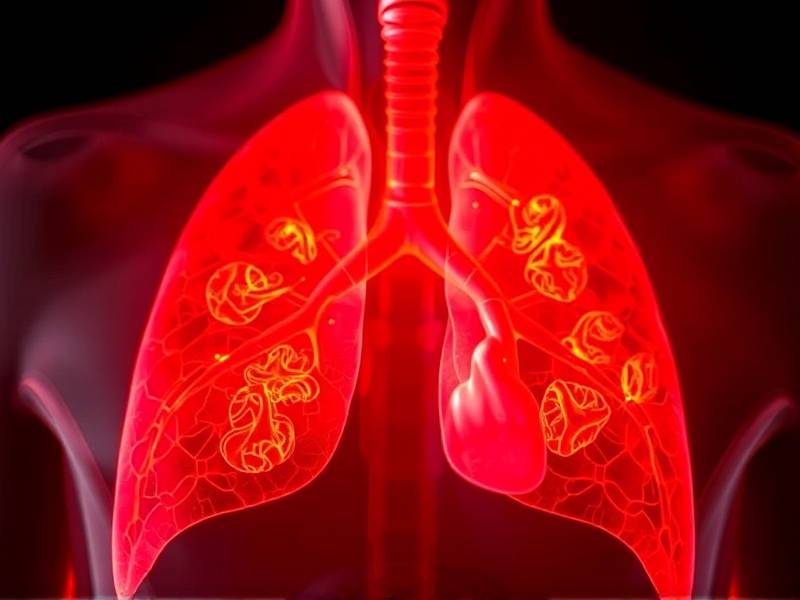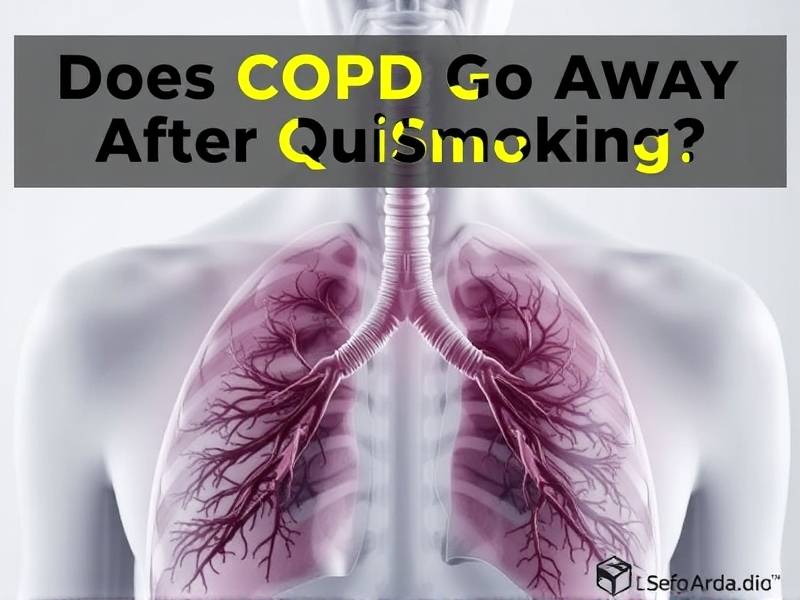Does COPD Go Away After Quitting Smoking?
The Long-Term Impact of Quitting Smoking on COPD: What You Need to Know
Introduction: Chronic Obstructive Pulmonary Disease (COPD) is a chronic lung disease that affects millions of people worldwide. Smoking is the leading cause of COPD, and many individuals with the condition are eager to know if quitting smoking can lead to the reversal of their symptoms. In this article, we will explore the long-term effects of quitting smoking on COPD and provide insights into whether or not the disease can go away after giving up tobacco.
Understanding COPD and Its Symptoms COPD is characterized by a persistent airflow limitation that is not fully reversible. Common symptoms include shortness of breath, chronic cough, and wheezing. The condition can significantly impact a person's quality of life and may lead to other health complications.

The Link Between Smoking and COPD Smoking is responsible for approximately 80-90% of all COPD cases. The harmful chemicals in tobacco smoke irritate and inflame the airways, leading to a gradual loss of lung function over time. Quitting smoking is essential for managing COPD symptoms and preventing further lung damage.
Can COPD Go Away After Quitting Smoking? While quitting smoking cannot reverse the existing damage in the lungs, it can significantly slow down the progression of COPD and improve overall lung function. Here are some key points to consider:

- Improved Lung Function: Research has shown that within a few weeks after quitting smoking, individuals with COPD may experience an improvement in lung function.
- Reduced Risk of Complications: Quitting smoking can lower the risk of developing complications associated with COPD, such as heart disease and respiratory infections.
- Increased Life Expectancy: Studies have demonstrated that individuals with COPD who quit smoking have a better prognosis than those who continue to smoke.
- Potential for Symptom Improvement: Some individuals may notice an improvement in their symptoms over time after quitting smoking, although this varies from person to person.
Long-Term Benefits of Quitting Smoking
- Slowing Down Lung Damage: By eliminating tobacco smoke exposure, you can slow down the progression of your COPD.
- Enhanced Quality of Life: Improved breathing makes daily activities easier and more enjoyable.
- Financial Savings: Quitting smoking can save you money on cigarettes, medical bills, and other related expenses.
Support Systems for Smokers with COPD Quitting smoking can be challenging, especially for individuals with chronic conditions like COPD. Here are some resources that can help:
- Professional Help: Consult with your healthcare provider for personalized advice on quitting smoking.
- Support Groups: Joining a support group or seeking help from others who have overcome similar challenges can provide motivation and encouragement.
- Nicotine Replacement Therapy (NRT): NRT products like gum, patches, lozenges, or inhalers may help alleviate withdrawal symptoms.
- Medications: Certain medications can help manage symptoms and reduce inflammation in the airways.
Conclusion: Quitting smoking is an essential step towards managing your COPD effectively and improving your quality of life. While it may not completely reverse your condition, it can significantly slow down its progression and provide long-term benefits for your health. Don't hesitate to seek support from healthcare professionals or support groups as you embark on this journey towards a smoke-free life.
